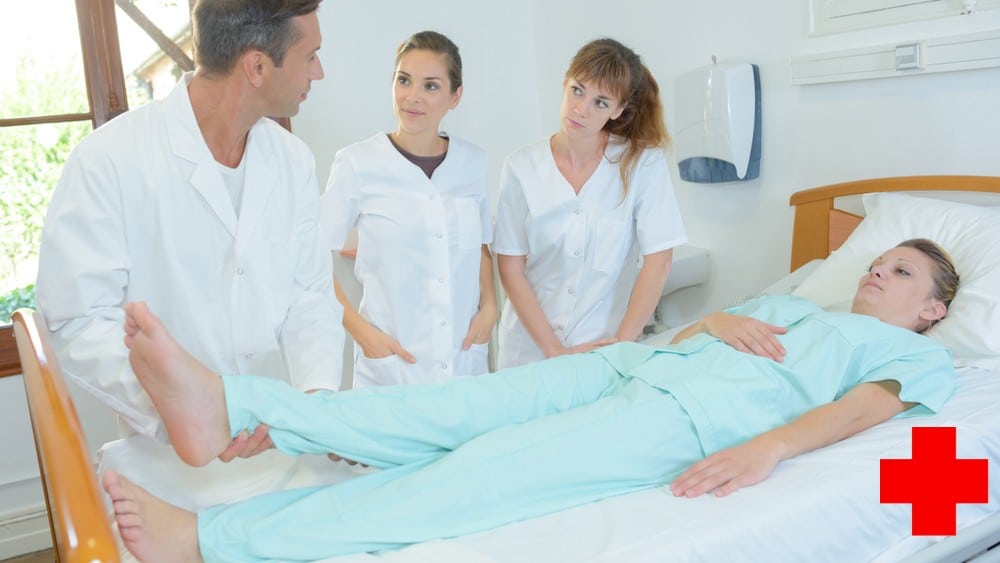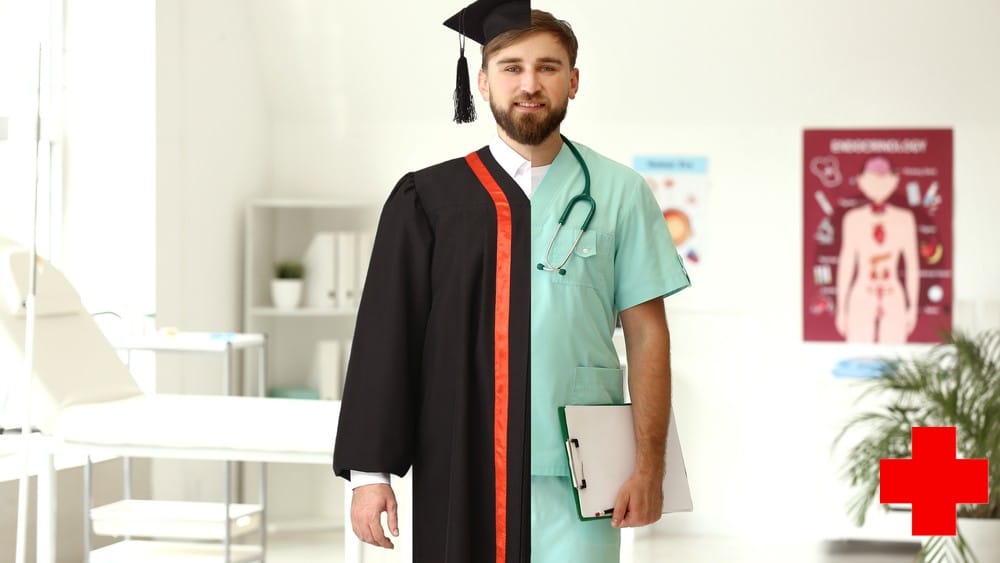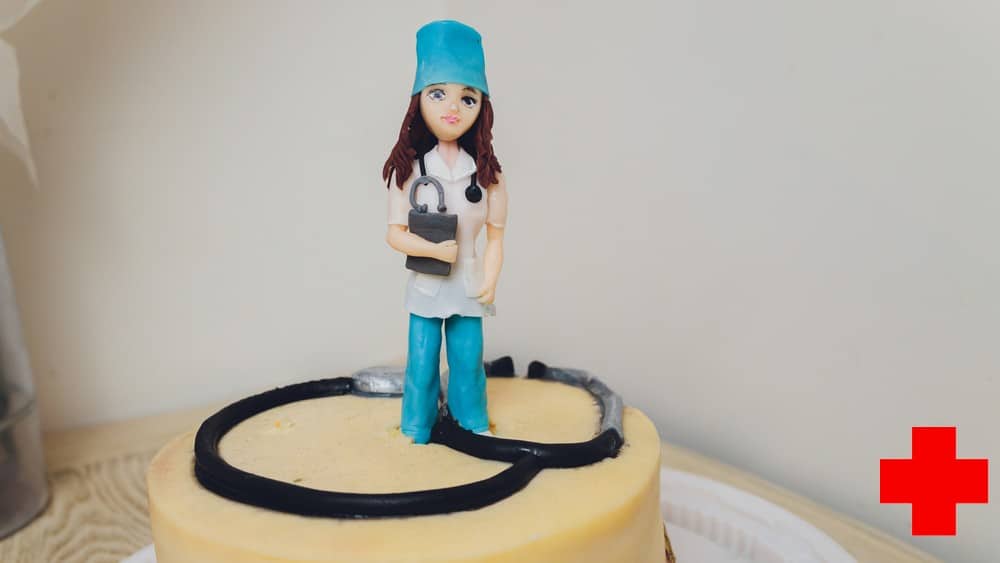A warm welcome to you all.
Today we will learn about courses and the curriculum of the licensed practical nursing program.
After reading through this guide, you’ll become an expert in the requirements for each course in the curriculum and what you need to do to pass them.
To be more specific, here are some points that we will cover in the guide:
- LPN courses
- LPN course requirements
- NCLEX-PN prerequisite course
- LPN refresher courses
Let’s get started immediately.
LPN Courses and Curriculum

As you prepare for your LPN program, we strongly feel you should start with learning the courses you will likely study.
The LPN, Licensed Practical Nurse, is an accredited program with courses divided into basic academic skills and clinical training.
The LPN course is usually 12-18 months long, and the core syllabus and the curriculum may differ depending on the state and institute you are enrolled in.
However, the basic course outline and required training skills remain the same.
Once the course ends, the LPN student must pass the National Council Licensure Examination- Practical Nurse (NCLEX-PN) to get the license and start practicing a career as a professional LPN.
The LPN course program is divided into three semesters, and the candidate has to accomplish the required credentials and pass the exams for each.
The basic LPN curriculum includes the following courses:
- Introduction to practical nursing – The roles and responsibilities of an LPN
- The different aspects of nursing, such as legal, cultural, and ethical
- The basics of Human Anatomy and Physiology
- Clinical training and assessments inclusive of medical history and physical examination
- Documentation (patient details, stats, etc.)
- Human body’s growth and development
- Basics about patient safety
- Pediatrics medicine
- Infection control and prevention
- Medicine administration
- Patient’s basic needs
- Emergency nursing care
- Gerontology nursing
- IV Therapy
- Maternal and neonatal nursing
- Rehabilitation care
A career as an LPN can be exhausting because you would be doing much more than the basic hospital stuff.
Even the course program itself is quite extensive.
So, to help you decide whether you want to be a part of nursing healthcare settings, let us have a quick overview of these courses.
Introduction to Nursing
This course entails knowledge about the basics of nursing.
In addition, it includes the history and evolution of practical nursing over the years.
Important aspects of this course include critical thinking and building effective communication with the healthcare team, the patients, and their families.
The LPN students are also taught and trained to take the vital signs (blood pressure, blood sugar, breathing rate, and heart rate) and diagnose and plan the implementation of various nursing care methods.
Legal, Ethical, and Cultural Aspects of Nursing
As an LPN, you would be directly responsible for the patient’s well-being, and certain medical procedures can put your career at stake if not followed properly.
This course teaches the code of conduct, including the legal, ethical, and cultural norms part of this profession.
In addition, the students are taught about the importance of maintaining patient confidentiality and ways to avoid malpractice.
Moreover, this course educates the LPN student regarding the nursing board and its variations in different states.
Medical History and Physical Examination
As an LPN, you would be required to assist a senior RN or registered nurse and report to the doctors.
Therefore, the students must be educated about the different ways of diagnosing, planning, and implementing the desired medical procedures for any patient under supervision.
This course also trains the student to take the physical examination of a patient.
Human Anatomy and Physiology
The responsibilities of a practical nurse involve catering to the human body.
They need to know more about the different body parts, organs, and functions.
The students are taught about the medical language- the abbreviations and terminologies they will encounter every day in their career as an LPN in nursing homes or elsewhere.
Medical Documentation
Every hospital and nursing care facility documents the patient’s needs, medical condition, and other relevant information required by JCAHO- The Joint Commission on the Accreditation of Healthcare Organizations.
The students are educated about medical abbreviations and their terminologies and how to use them while documenting the patient’s information.
Human Body’s Growth and Development
This course includes the fundamentals of spiritual, cognitive, psychological, and social medical needs of patients of all ages.
In addition, to help them understand the growth of the human body, the students are taught about the transition from infancy to old age.
Patient Safety
It is the utmost responsibility of every licensed practical nurse to make their patients feel safe and secure.
This course teaches future LPNs to avoid risks such as wet floors, wrong prescriptions, and breach of confidentiality that can compromise patient care.
Furthermore, the students are educated on handling natural disasters such as cyclones, terrorism, accidents, and earthquakes, especially while the patient is being transferred between locations.
Infection Control and Prevention
To avoid questioning your competency as a practical nurse, it is important to learn about the risk factors that affect infections and control and prevent them.
Therefore, the students are taught about infections and sterilizing, cleaning, and disinfecting the surroundings.
Administering the Medicines
As the LPNs must administer medication to their patients, they need to understand the prescriptions, dosages, and modes of medicine administration in patients of all ages.
Moreover, this course also educates them about the potential side effects, complications, and ways to manage them.
Basic Needs of the Patient
This course educated the students about handling the patients’ basic needs such as their hygiene (bathing, brushing teeth, etc.), mobility, feeding (managing the fluids and electrolytes), and taking care of the patient with empathy in the best possible way.
Emergency Nursing Care
The students are taught how to work in the emergency departments and cater to patients in critical situations such as heart attacks, hemorrhages, accidents, etc.
They are also trained to manage emergency conditions such as burns, fractures, bleeding, and other forms of medical crisis.
Pediatric Nursing
Patient care for infants and kids is different from adults and older people.
So even though only specialized nurses can handle neonates and infants, you would still be educated about the fundamentals.
This course includes understanding the nutritional requirements, immunizations, growth, anxiety, control, infection safety, and death prevention.
Gerontology Nursing
This course educates practical nursing students about elderly patient care.
In addition, they are taught about the aging process and long-term care.
IV Therapy
Albeit the fact that most states do not allow the LPNs to administer intravenous fluids in healthcare facilities, they are still taught about the basics of IVs and handling catheters.
In this course, the practical nursing students learn about the terminologies like isotonic, hyper, or hypotonic solutions central line IV, peripheral IV, etc.
The students are also taught about applying and administering blood, inserting the tubing, and checking the behavior of IV fluid flow rates.
Maternal and Neonatal Nursing
In this course, the students are educated about the care of pregnant women, delivery procedure, post-delivery care, and tending to the newly born infant.
Rehabilitation Care Nursing
To complete the practical nursing process and do justice to your nursing certificate, you must learn about tending to patients with empathy and politeness and approaching them according to their mental health.
This course targets education towards patient care for people with depression, PTSD, anxiety, brain injury, traumatic accidents, and other conditions, especially those that can make the patient handicapped or immobile.
So, to kickstart your nursing career, ensure that you attend all the courses required for the LPN or RN program that will help you get into the pool of LPNs with successful pass rates.
LPN Course Admission Requirements

As ratatouille’s famous line goes, “not everyone can become a great artist, but a great artist can come from anywhere.”
The same goes for the LPN program too.
No matter where you’re from, you can enroll in an LPN program as long as you meet the eligibility prerequisite.
There are two prerequisites, namely:
Academic prerequisites: a high school diploma, a CPR certification, and an English language proficiency result for foreigners or people who don’t speak English as their first language.
Pre-clinical prerequisites: An immunization result stating that you are immunized against some diseases, a tuberculosis and hepatitis vaccination report, a medical report, and a background check result.
Other things you need for the LPN courses

Throughout your LPN courses, some things are recommended that you have.
Although some are not compulsory, they will speed up your learning process and make several resources available.
Let’s find out what you need:
Textbooks: These are unarguably the most important resources to get a high pass rate in your courses.
Each course has several textbooks that you must study each semester. You can buy as many as possible or just a few if you’re on a budget.
You can buy these textbooks either online or offline.
You can also buy old textbooks or even rent one during the period in question.
Stethoscope– One of the identifying features of medical personnel is the stethoscope.
Even if you are not using it at the moment, you will eventually need one for your clinical.
They come in different price ranges, and there are several brands.
Do they all do the same thing? Most likely, although some are more durable than others.
You can order one online or visit the medical store to buy one in person.
A word of advice: buy a good one that will save you the extra cost of buying another all too soon.
Laptop: assignments are very compulsory in any nursing school.
We can assure you that even if you love reading in the library of your community college, there are times when you won’t feel like it.
With strong internet access and a laptop, you can access a wide variety of online materials for each LPN course.
Uniforms, socks, and shoes: Each nursing school has a peculiar uniform for identifying its nursing student.
It would be best to buy the uniform no matter where you choose to enroll in your LPN program.
As you also know, nurses are always adorned in white shoes and socks with no extra designs.
If you don’t have one, buy one.
Books, pocket spirals, penlights, and scissors are other things you might think of getting in preparation for your LPN program.
You can easily get all of these things at the desired price ranges from any local store and online.
However, if you are on a tight budget, consider buying second-hand stuff or renting things like textbooks to save some money.
If you qualify for financial aid, all your preparation will be even better.
LPN Refresher Courses

If you are an LPN who did not get a chance to practice your career and now want to get into the profession again, you can try the LPN refresher courses.
These courses allow you to reactivate your LPN licensure, update your academic knowledge, enhance your nursing skills and get back into active nursing.
A refresher course is ideal for LPNs who have been inactive for a long time but need to update their knowledge and skills.
LPN refresher courses are usually one year, but the course you choose can make that period a little shorter or longer.
The refresher course has three parts:
Coursework: The refresher coursework is ideal for LPNs who have been inactive for a long time but need to update their knowledge and skills.
However, it is important to understand that this coursework is expansive and may take four to six years to complete with relevant experience.
Clinical Experience: To get through the refresher course, the LPN is required to complete 100-200 hours of hands-on clinical training.
Final Exam for the LPN Renewal: To reactivate your LPN certificate, you will have to sit for the state-bound exam.
This exam comprises 150 to 250 MCQs- multiple-choice questions alongside one to three short writings.
Each state has its peculiar pass rate for recertification that must be met by everyone taking the refresher course.
Here is a breakdown of the coursework:
- Nursing roles and responsibilities
- Legal and ethical issues
- Infection control
- Community health
- Disease transmission
- Nursing process
- Charting, reporting, and documentation
- Medications and classifications
- Nutrition
- Data collection
- Principles of body mechanics
- Skincare
- Life span
- Death and dying
You’ll notice that most of the courses, if not all are the same as what a nursing student will study in a regular LPN program.
It is like a brush-up, helping prospective nurses who want to return to the labor market get the real-life knowledge and experience they need.
If you need to find a list of LPN course providers, you can either go online and search for one or visit the nursing board website to find a list of accredited institutions.
Here is How you can Apply

After searching for an institution of your choice, contact the institution and obtain the application form.
Complete the application form by filling in all required personal information.
Provide any previous LPN training proof, and submit your LPN license’s current status.
Once the school accepts your admission, you are good to go!
Conclusion

A brief run-through of the courses in the LPN curriculum had helped many nurses when they were preparing for their LPN program.
We hope it has done the same for you too.
As a reminder, compare what you have with the admission requirements to ensure that you meet the eligibility criteria for enrolling in the program.
These courses are interesting yet bulky.
That means you must devote significant time to studying for the program.
And when you finally do get prepared this way, attending classes for LPN will not just be a stroll in the park; it will be a much easier ride.
Wishing you all the best!
FAQs

How much do LPN courses cost?
In the United States, the average cost of the LPN courses is between $10,000 and $15,000. Although this pricing can be slightly lower or higher, depending on the LP course provider. Looking at that daunting amount can be frustrating, but the long-term benefits make the sacrifice worth it. Qualifying for financial aid will ease the financial burden.
How long are LPN courses?
From start to finish, LPN courses usually last 12 to 24 months. So, what determines if a student attending a community college will either spend 1 or 2 years? It is if they choose to attend either full-time or part-time. On completing the program, they get certified as a registered nurse.
What courses do you need to become an LPN?
You will need a high school diploma, a GED, or any suitable equivalent. Next, you must have graduated from an institution with no accreditation problem. You will need to have a good knowledge of science courses like anatomy, biology, physiology, etc.
Can I take LPN courses online?
One thing is true: online classes are available for LPN students. However, it is also true that online classes alone are not enough to meet the state board requirements. This is because clinical experience is a major prerequisite before sitting for the national council for a licensure examination. Unfortunately, you cannot get clinical experiences online.
Who offers LPN classes online?
There are lots of nursing schools that teach nursing care online. If you want one, conduct a simple internet search in the state where you reside. One good thing about these course providers is that they can also help you prepare for the state licensure exam.
What courses are required for LPN degree programs?
Below is the required coursework for students hoping to bad their associate degree certification in nursing (ADN) or their Bachelor of Science in Nursing (BSN) degree:
– Anatomy
– Physiology
– Nursing skills
– Patient assessment
– Mental health nursing
– Pharmacology
– Medical-surgical nursing
– Maternal and child nursing
– Geriatrics nursing
Are there colleges with LPN programs?
The simple answer is yes. There are colleges in the United States that have met accreditation requirements for awarding certificates for Nurse Assisting and Practical Nursing Programs. This does not affect the running of some nursing degree programs and other programs within the healthcare industry.









